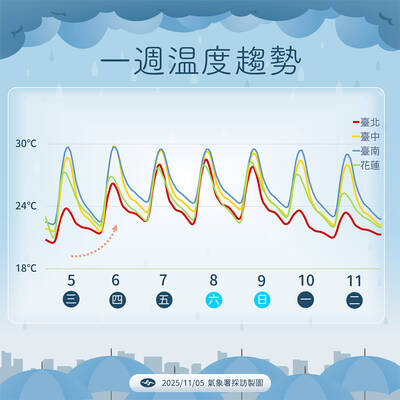Twenty percent of the "ghost money" burned in massive quantities during the Tomb-Sweeping Festival contains lead, the Consumers' Foundation said yesterday, prior to the April 4 festival.
Taiwanese tradition dictates that people must prepare food, drinks, "ghost money" and incense as offerings to the gods or their ancestors. After a ceremony, the money is burned for use by the gods or the dead.
The results of a test conducted by the foundation and the Bureau of Standards, Metrology and Inspection (BSMI) under the Ministry of Economic Affairs found lead in six of 30 ghost money samples, foundation chairman Cheng Jen-hung (
He said that even though the amount of lead in the samples were under the acceptable limit of 1,000 parts per million, "it is still a health hazard."
"Excessive lead exposure can cause brain damage, learning difficulties and slow growth in children," Cheng said. "Adults suffering from lead poisoning will feel pain in the muscles and joints, and their blood pressure will also rise."
The standard used to test the ghost money is based on EU guidelines, said Julie Chuang (
Of the 30 items tested, 22 were also found to lack clear indications specifying the ingredients, the name of the manufacturer, the weight of the paper and the date of production, Chuang said.
Chuang further suggested that "even if the ghost money meets acceptable standards, it should only be burned outdoors and those handling it should wash their hands afterward."
In order to reduce air pollution and safeguard public health, Cheng urged the public to burn as little ghost money as possible, saying that in the future, the government will make further attempts to promote the burning of "ghost credit cards" or "ghost checks" rather than large amounts of "cash."
The suggestion has been made several times over the last few years but has been very unpopular with the public.

UNILATERAL MOVES: Officials have raised concerns that Beijing could try to exert economic control over Kinmen in a key development plan next year The Civil Aviation Administration (CAA) yesterday said that China has so far failed to provide any information about a new airport expected to open next year that is less than 10km from a Taiwanese airport, raising flight safety concerns. Xiamen Xiangan International Airport is only about 3km at its closest point from the islands in Kinmen County — the scene of on-off fighting during the Cold War — and construction work can be seen and heard clearly from the Taiwan side. In a written statement sent to Reuters, the CAA said that airports close to each other need detailed advanced

Tropical Storm Fung-Wong would likely strengthen into a typhoon later today as it continues moving westward across the Pacific before heading in Taiwan’s direction next week, the Central Weather Administration (CWA) said. As of 8am, Fung-Wong was about 2,190km east-southeast of Cape Oluanpi (鵝鑾鼻), Taiwan’s southernmost point, moving westward at 25kph and possibly accelerating to 31kph, CWA data showed. The tropical storm is currently over waters east of the Philippines and still far from Taiwan, CWA forecaster Tseng Chao-cheng (曾昭誠) said, adding that it could likely strengthen into a typhoon later in the day. It is forecast to reach the South China Sea

WEATHER Typhoon forming: CWA A tropical depression is expected to form into a typhoon as early as today, the Central Weather Administration (CWA) said yesterday, adding that the storm’s path remains uncertain. Before the weekend, it would move toward the Philippines, the agency said. Some time around Monday next week, it might reach a turning point, either veering north toward waters east of Taiwan or continuing westward across the Philippines, the CWA said. Meanwhile, the eye of Typhoon Kalmaegi was 1,310km south-southeast of Oluanpi (鵝鑾鼻), Taiwan’s southernmost point, as of 2am yesterday, it said. The storm is forecast to move through central

UNKNOWN TRAJECTORY: The storm could move in four possible directions, with the fourth option considered the most threatening to Taiwan, meteorologist Lin De-en said A soon-to-be-formed tropical storm east of the Philippines could begin affecting Taiwan on Wednesday next week, the Central Weather Administration (CWA) said yesterday. The storm, to be named Fung-wong (鳳凰), is forecast to approach Taiwan on Tuesday next week and could begin affecting the weather in Taiwan on Wednesday, CWA forecaster Huang En-hung (黃恩鴻) said, adding that its impact might be amplified by the combined effect with the northeast monsoon. As of 2pm yesterday, the system’s center was 2,800km southeast of Oluanbi (鵝鑾鼻). It was moving northwest at 18kph. Meteorologist Lin De-en (林得恩) on Facebook yesterday wrote that the would-be storm is surrounded by